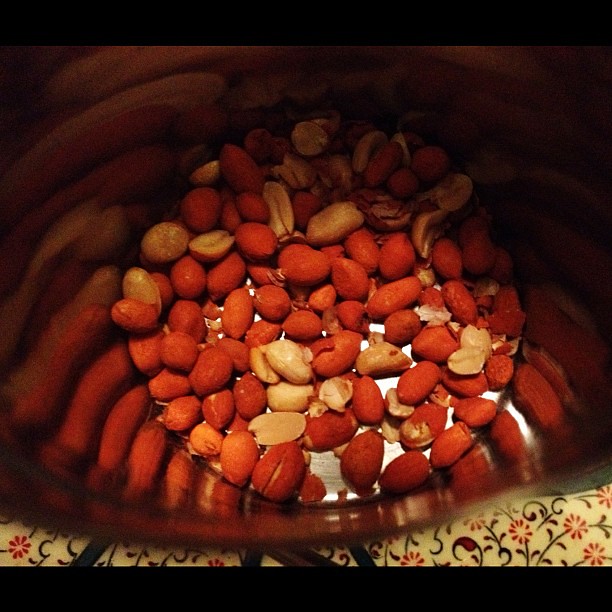Ever since I returned to India 2 years back, my roasted peanuts of choice have been the one by Haldiram. I used to even buy them to grind them to make peanut butter until I discovered MyFitness Peanut Butter almost exactly a year back.
Recently, though, I hadn’t been able to procure Haldiram’s peanuts. And on a random trip to a supermarket, I found a brand called “Jabsons”. I bought it on a whim, and was super impressed.

The nuts themselves are larger than Haldiram’s, and are crispier. And I notice that the brand markets that it’s from Gujarat, where a lot of peanuts are grown. So far, so good.
PSA: Jabsons salted peanuts >> Haldiram's salted peanuts
— Karthik S (@karthiks) March 20, 2021
And then on twitter, people recommended that I try their flavoured peanuts as well. For the longest time I haven’t been a fan of flavoured peanuts, maybe because I’ve had a few bad ones. I mean, I like the local shop ones, the yellow split masala ones called “Congress” and the red roasted ones called “Communist“.
In any case, inspired by the responses to my tweet, I decided to pick some variants of the Jabsons peanuts on the next visit to the supermarket. I started “safely”, with Black Pepper.
And that was insanely brilliant. Very very awesome. Among the best flavoured roasted peanuts I’ve ever eaten. I even crafted a tweet in my head to appreciate it, but couldn’t post it then because I was on a mini twitter break. I’m writing it here.
Jabsons black pepper peanuts kicks the ass of both Congress and Communist. Given that it comes from Gujarat, I hereby christen it “BJP”.
And my quest for other flavours of Jabsons peanuts continued. I soon picked up a “spicy masala” flavour. It was a bit spicy for my liking, but I found that it goes brilliantly with curd rice. And then I acquired a taste for it.

Thinking about it, the Jabsons spicy peanuts are somewhat like Congress, but not quite Congress. And they come from Gujarat. Sort of Congress from Gujarat, but not quite Congress. Who does that remind you of?
Well, Shankersinh Vaghela, of course.
So I hereby christen the Jabsons Spicy Peanuts Shankersinh Vaghela. Goes very very well with curd rice.
